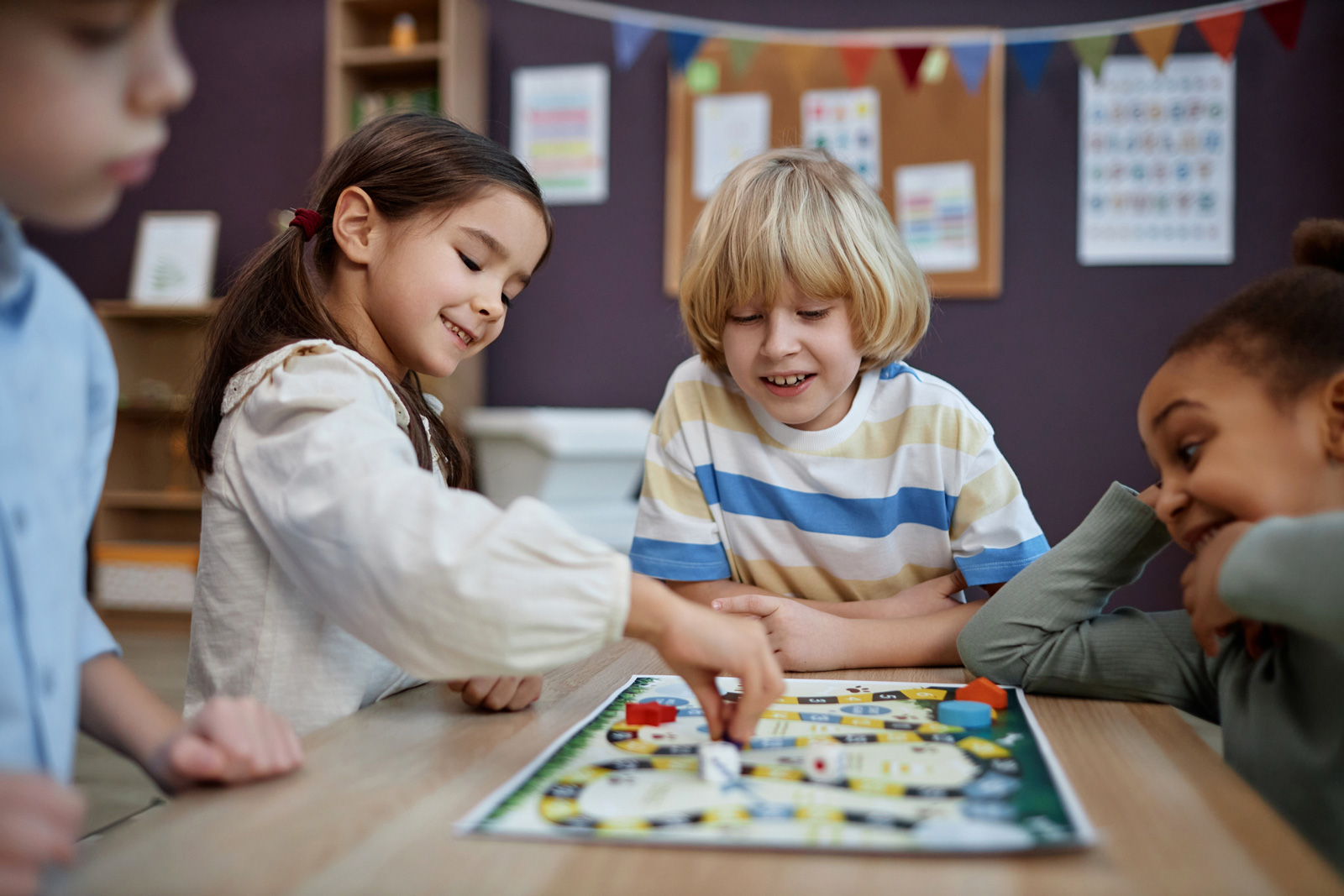In today’s digital age, where screens are prevalent and virtual worlds beckon young minds, there’s something timeless and magical about gathering around the table to play board games with kids. Beyond the joy and laughter that board games bring, they also offer a wealth of benefits for children’s development. Whether you’re simply searching for a new activity or the weather doesn’t allow for outdoor adventures, playing board games with kids offers quality time, critical thinking, and loads of fun and memory-making.
Board Games Build STEAM Skills
STEAM is the acronym for science, technology, engineering, arts, and mathematics. This is an educational philosophy that informs many school learning objectives, activities for kids, and even children’s toys. Many board games incorporate strategy, logic, puzzles, and classic education elements, making them ideal tools for developing these essential STEAM skills.
One of our favorite examples of incorporating STEAM into board games with kids is with matching games. Nearly anything can be made into a matching game, even if you can’t find it in a store. If your little one is working on beginner-level math, consider creating a matching game of simple addition problems and their answers. It only takes a piece of paper cut into small pieces and a pen or marker to write on them, making it a fun craft activity, too.
Two other great options for playing board games with kids are simple but classic games: Candyland and Chutes and Ladders. They have similar concepts but different difficulty levels, therefore accommodating different ages and abilities. Chutes and Ladders mainly focuses on counting, allowing little ones to roll dice, identify numbers, and then count to them. Candyland is similar but uses color cards to indicate turns. This is great for little ones working on color recognition and can be great preschool prep.
Social-Emotional Learning with Board Games
In addition to STEAM skills, playing board games with kids helps with social-emotional skills. Most board games require an element of working together – whether that’s with a cooperative group game or simply taking turns. Following rules and communicating with others are both essential for board games and essential for real life. Social-emotional skills are imperative for appropriate development. They help your child develop empathy and compassion and help them identify all kinds of different emotions.
Our Favorite Board Games for Older Children
There are tons of board games suitable for little kids, but they are an extremely valuable tool for older kids, too. At The Breakie Bunch Learning Center, we love to offer several board game options for the older kids in our after-school program. Monopoly is a tried-and-true classic game that offers countless learning opportunities. Money management is the most prevalent, but it also involves lots of math, negotiation, and strategizing.
Three other classic games we love for older kids are:
- Scrabble
- Yahtzee
- Clue
All of these have some element of education but disguise it enough that kids don’t even realize they’re learning; they just know they’re having fun! No matter how many kids are involved or how big of an age range, we can guarantee that board games offer family fun, bonding, and a healthy competitive spirit.

